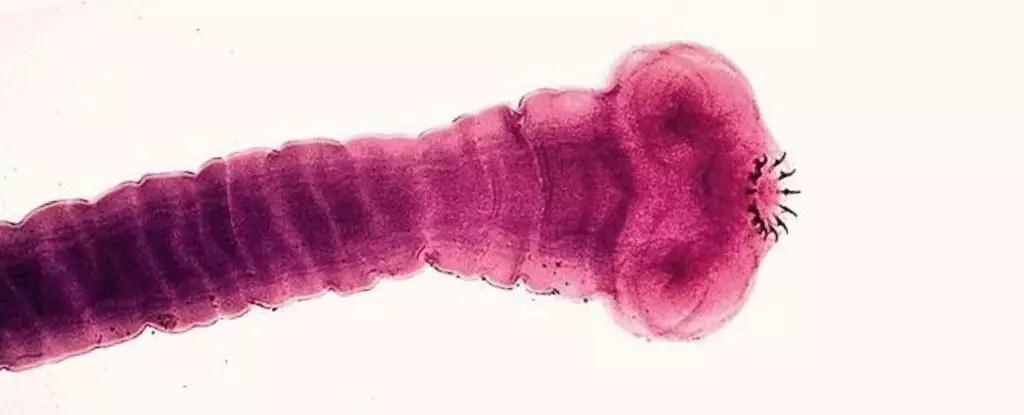In a bizarre and unusual case, a 52-year-old man from Florida was admitted to the hospital due to worsening migraines that he had been experiencing for the past four months. Upon further investigation using a CT scan, doctors were shocked to discover that the cause of his severe headaches was multiple cysts scattered throughout his brain. These cysts turned out to be larval cysts of the pork tapeworm (Taenia solium), a condition known as neurocysticercosis.
The man’s case puzzled infectious disease experts as he had not traveled to countries or farms known for the risk of exposure to pork tapeworm infection, nor had he consumed food or water contaminated with infected feces. Neurocysticercosis is a rare condition outside of classic exposures or travel to regions with poor sanitation, and until now, it was believed to be nonexistent in the US. However, the patient did confess to enjoying undercooked bacon, which he had been consuming for most of his life. This raised the suspicion that his taeniasis, or tapeworm infection, may have been a result of his dietary habits.
The authors of the case report speculated that the man’s cysticercosis may have been transmitted via autoinfection. This means that after contracting taeniasis from eating undercooked pork, he may have unknowingly ingested some of the eggs present in his feces due to improper handwashing practices. Taeniasis occurs when individuals consume undercooked pork containing larval cysts, while cysticercosis is contracted by ingesting eggs from the feces of individuals with taeniasis.
Neurocysticercosis poses severe risks beyond just migraines, with up to 80 percent of cases experiencing seizures. Depending on the location of the cysts in the brain, symptoms can vary from mild to severe, including neurological deficits such as paralysis, weakness, numbness, increased intracranial pressure, cognitive decline, confusion, and memory loss. The authors emphasize that any significant changes in migraine frequency or characteristics should raise concerns for new underlying pathologies.
The patient received treatment with anti-parasitic and anti-inflammatory medications, resulting in the clearance of the brain cysts and the resolution of his debilitating headaches. The authors expressed concerns regarding the possibility of infected pork in the US, as it is historically rare to encounter such cases. This unique case highlights the importance of proper food handling and hygiene practices to prevent potential parasitic infections.
The unusual case of a man developing brain cysts from consuming undercooked pork serves as a cautionary tale about the risks associated with poor food safety habits. Neurocysticercosis, though rare, can have severe consequences and should not be taken lightly. This case underscores the need for public awareness about the potential dangers of consuming undercooked meat and the importance of proper handwashing practices to prevent infections.


Leave a Reply